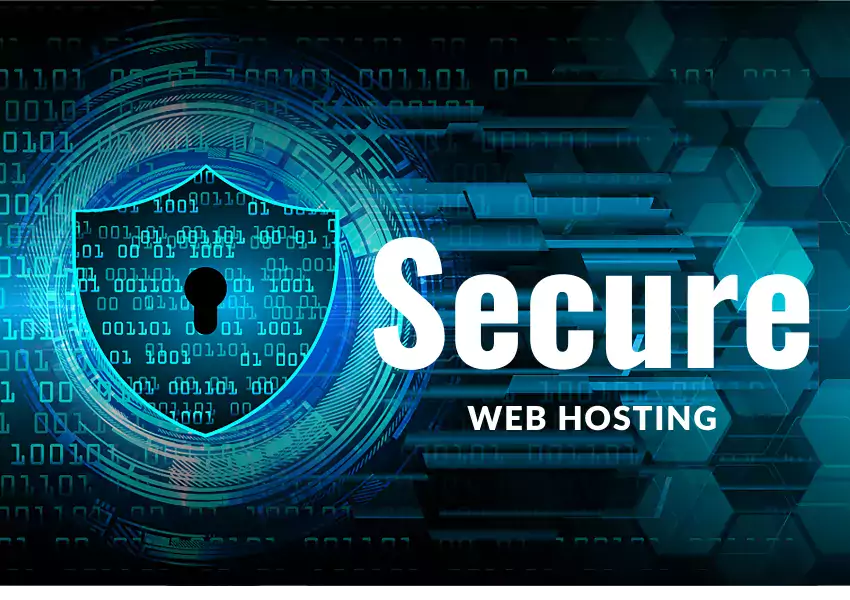
Why it is important to choose safe and secure hosting plan?
Cyber threats have become fashionable nowadays with technologies that are helping businesses grow and making them vulnerable to online threats. We often hear about the latest website updates and plugin updates, but what about security updates?
Hosting providers do offer security from malware, online threats, and spam. However, these security measures are effective when you keep everything updated. Using outdated settings and hosting plan versions will make your website lazy and vulnerable to malware attacks.
What are the security risks of hosting?
Before we move ahead and explain the types of security risks with hosting, it is essential to understand that website cyber attacks and hosting cyber attacks are different. A website attacked by cyber theft affects only the website, while a cyber attack on a hosting plan affects all the websites linked with the hosting provider.
In 2019, the largest cyber attack was reported on a pro-hosting provider in Georgia, affecting about 15,000 websites, including presidential, private, and non-government websites. Although the hosting provider was able to recover the websites, it led to massive downtime and affected the working of many companies.
Let us look at the types of cyber attacks a hosting provider is vulnerable to and how they affect your website.
Compromised Login Credentials
Malicious hackers have been reported to gain access to login credentials by running scripts that use common passwords to access websites on the internet. After 2019's most significant cyber attack, GoDaddy said an unidentified individual was suspected of gaining access to the Secure Shell (SSH) log in credentials.
Windows OS Server Vulnerability
Web hosting servers provide their users with Linux and Windows OS-based servers. The two servers have pros and cons; Windows OS-based servers are more vulnerable to cyber-attacks. The Windows OS servers recently became victims of the Zerologon attack, which Microsoft patched.
DDoS Attacks
DDoS, or distributed denial-of-service, has become a typical cyber attack on hosting and websites, leading to website downtime. The incidents of DDoS have multiplied surprisingly, leaving almost every website on the internet vulnerable to it.
How to Ensure Your Hosting Security?
Insufficient security measures are the main reason behind the rampant cyber attacks. Even big brands are failing to understand the need to choose secure web hosting. Every website owner should ensure that the chosen web hosting provider has adequate security measures that safeguard the website from malicious activities.
Here is a list of checklists that can help you ensure that your hosting provider is using top-notch security measures:
SSL Certificate
SSL certificate encrypts data transferred between a user's browser and web server. It is a security protocol that ensures the safety of private information such as passwords, billing addresses, and usernames. When choosing a web host, make sure it provides an SSL certificate. Most hosting providers offer a free SSL certificate with every purchased plan.
Malware Scanner
A malware scanner is a software security measure that analyzes the activity on the hosting server to ensure it is protected from cyber threats. The security measures include anti-malware software and an anti-DDoS traffic analyzer. If the malware scanner finds a malicious file, it will clean it automatically.
DDoS Protection
An attack on distributed denial-of-service (DDoS) makes the website less accessible to valid users by overloading the website's traffic. The DDoS attack can cause severe and expensive downtime. A good web host will have DDoS protection in place to protect and ensure the smooth working of the websites on its server.
CDN Support
CDN or content delivery network ensures smooth and fast loading of the website. The absence of CDN support can lead to downtime. A CDN support system allows the server to launch website content from the nearest server instead of the primary server, ultimately leading to low downtime. A web host with CDN support can ensure the website loads faster.
Backups and Restorations
When choosing a hosting plan, ensure that the provider offers backup and restoration features. If something goes wrong, you can quickly restore the website by loading the backup files. Back and restoration features ensure that the data of the website is recoverable in case of unexplained downtime and errors.
Network Monitor
Many web hosting providers have built-in net monitor features that automatically analyze the network for any suspicious activities. You can ask the hosting provider whether they have a network monitor by contacting their customer support.
Improving your web hosting security is essential for your business and brand's reputation. When choosing a hosting provider for your website, ensure the host provides DDoS protection, backups, software security, and SSL certificates.
In addition to that, it is essential to have a strong password set to protect online data. Your website may be at risk of cyber attacks due to negligence, such as authorizing access to everyone, sharing credentials on public networks, and more. Therefore, ensure you follow all security measures to protect your website and its data online.
Web Hosting Security FAQ
How do I find a safe web hosting provider?
Safe and reliable web host supports all types of security measures such as backups, malware scanners, SSL certificates, DDoS protection, and 24/7 support. When choosing a hosting provider, make sure it offers all security measures in your paid plan.
Can a hosting provider guarantee website security?
No web host can guarantee the safety of your website because of external factors such as third-party interference and user behavior. A hosting provider, however, helps minimize security breaches online.
Which hosting types provide the best security?
Virtual private servers, or VPS, are the best type of hosting for enhanced security measures. The VPS system ensures that if one website is affected on the server, it won't affect the other websites on the server. But it is also important to note that any mistake from you or your users can lead to security breaches even on the virtual private servers. Ultimately, the security of a website depends on how a website is accessed and controlled.